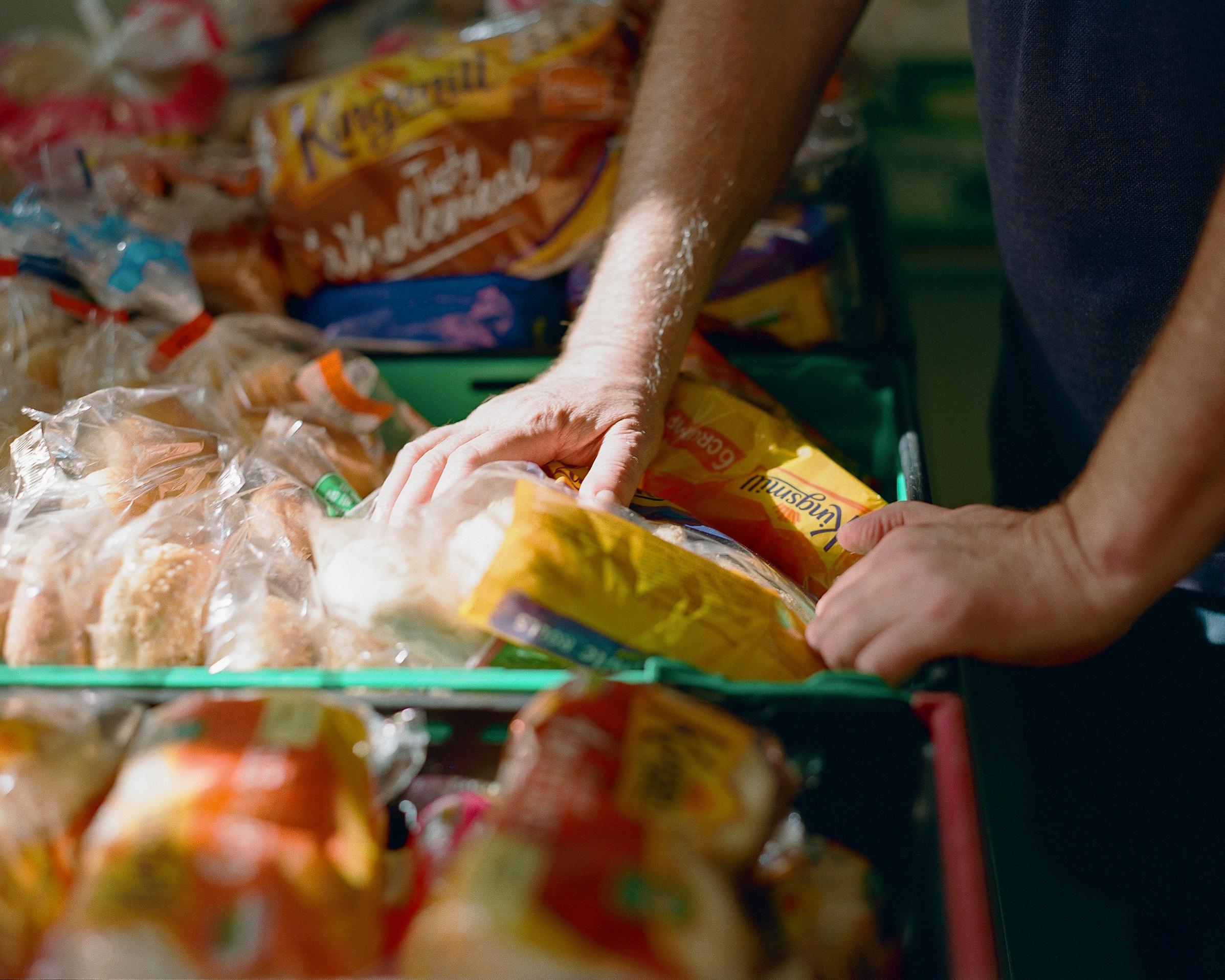It's wrong that UK immigration and asylum systems make people destitute
The majority of people migrating to the UK come to work and study and have no safety net. Both our immigration and asylum systems make people destitute by design and need urgent reform.
Most people migrating to the UK come to work, study, or join family[i]. Most will be granted leave to remain, subject to immigration control, without access to state support such as the social security system or housing support. This is known as having ‘No Recourse to Public Funds’ (NRPF)[ii].
People coming to the UK to fill much needed vacancies in, say, the NHS or in agriculture are excluded from help, even if their circumstances warrant it or change. If they are in low-paid work, fall ill, or the cost of essentials soars, they can’t access the income support that would help them make ends meet. If they’re evicted because the landlord sells up, they can’t get homelessness assistance or a social tenancy from their local authority. It puts people in precarious situations and drives needless destitution for people whose skills we need.
A far smaller proportion come seeking safety
People seeking asylum can get stuck in limbo for years, trying to survive on pitiful levels of financial support, in poor quality housing and normally, with no right to work[iii][iv][v]. Everyone wants to make a positive contribution. With the majority of people seeking safety eventually granted the right to settle[vi], having a prolonged period where people are unable to make a decent life for themselves and their families, drives needless hardship and destitution.
The new Illegal Migration Bill will place people in desperate situations
Taking the Government at their word, the Illegal Migration Bill is intended to deter people coming to the UK to claim asylum except via agreed routes (that exist for only a few countries at present). It will boost powers to detain and deport people it deems unlawfully present. JRF’s principal interest is in destitution, rather than immigration, but experts such as the Scottish Refugee Council and Just Right Scotland, tell us the new Bill won’t stop people coming to the UK, and the new detention and deportation provisions are unworkable[vii]. The most recent judgement by the Court of Appeal lends some support to that view.
But what it will do is make an already dire situation even worse: by preventing people from ever having a valid claim to stay heard, it will create strong incentives to disappear under the radar, including into the arms of modern-day slave traders and into sexual exploitation[viii].
The number of people living in our communities but completely excluded from support will grow, putting further pressure on local public and charitable services, and undermining community safety[ix].
Current help is too hard to access and the protections threadbare
The Government have argued[x] that they support people in the asylum system directly (albeit at a very low level); that other immigrants subject to NRPF can apply for help where they are destitute or at imminent risk, and that local authorities can offer a basic safety net to all. In reality, this is not the case.
There are wafer thin protections for some households – such as families with children - but they are unclear and un-funded, leaving local authorities facing huge costs and unable to stretch support to all who need it. For most other households, local authorities are forbidden from stepping in to help where the reason for that destitution is the very immigration rules causing it. Under-funded third sector groups contort to fill the gaps and prevent human catastrophe.
Our current approach to migration and asylum is driving misery and destitution – with scant evidence that the hostile environment has put people off, but clear evidence of rapidly increasing numbers[xi] and rising destitution[xii]. The approach has failed as a policy, on its own terms.
It doesn’t need to be this way.
Many places want to take a different approach
There are places throughout the UK who want to see a fairer, more effective and humane approach to integrating people from outside the UK – including Cities and Nations of Sanctuary. Scotland’s Ending Destitution Together strategy explicitly commits to work to prevent and mitigate destitution arising from a person’s immigration status.
Fair Way Scotland[xiii] – a partnership between the Scottish Government, COSLA and the third sector – are trying to design out destitution by taking a strategic national approach and using independent funding to fill the gap where ‘public funds’ can’t yet go.
They offer people with no statutory rights a safe place to stay, access to specialist legal advice and casework to regularise their status and plan their future, get practical help and a small amount to live on. JRF, alongside Homelessness Network Scotland and Heriot Watt University, are supporting them to build the case for a fairer, more humane and effective approach and learn from what works – but their ability to do so is being put at risk.
In 2021, when they started, the numbers of people subject to NRPF in Scotland felt just about manageable given the right ‘will’ to solve it (for example, up to 500 people on any given night in need of accommodation and support in Scotland). Experience told them there were solutions out of that destitution for most.
However, partners now warn us that if the Bill passes in its current form, those numbers will increase. A growing proportion of people coming to Scotland will have no prospect of ever being accepted as a refugee and accessing mainstream help, meaning ever greater numbers of people locked out indefinitely of essential opportunities to integrate, access paid work and move on from destitution. That is unsustainable and unsafe.
It is wrong to use destitution as a policy tool
Destitution should never be used as a public policy tool. This doesn't mean we shouldn't have any immigration rules or returns policies, or that everything should be available to everyone, in full, from day one. Those are political choices that we have to make as a country. But whatever we do should be underpinned by the principle that, in the UK, you should never be destitute, no matter what.
To deliver on this we need the UK Government to take a more competent, compassionate, and coherent approach, and commit to that over-arching principle.
Over the next couple of months, we will be exploring with partners more detailed policy recommendations for the UK Government to deliver that ambition, sharing learning from our first year of Fair Way, and considering what the reserved policy shifts mean for Scotland.
Notes
[i] In the year ending March 2023, of over 3 million visas were issued, 51% were for temporary visitors (over 1.5 million); and 37% or 1.1 million were for study and work alone (1,119,777): 21% were for students and their dependents (632,006); 16% were work routes, including dependents (487,771); 3% were for family visas and permits (around91,000) and 9% were for other reasons, including grants of leave to people leaving Ukraine, and Hong Kong (around275,000). https://www.gov.uk/government/statistics/immigration-system-statistics-year-ending-march-2023/how-many-people-come-to-the-uk-each-year-including-visitors
In the year to March 2023, 75,492 asylum applications were made (relating to 91, 047 people) – including around 45,000 via small boats.
Total entry clearance visas granted, by visa type, year ending March 2023 (see Figure 2): https://www.gov.uk/government/statistics/immigration-system-statistics-year-ending-march-2023/how-many-people-do-we-grant-protection-to#:~:text=2.-,Asylum%20applications,highest%20number%20for%202%20decades
[ii] ‘An NRPF condition is mandatory for most types of visa. Most temporary migrants have no recourse to public funds, with human rights exceptions’. Source: No Recourse to Public Funds, Research Briefing, Commons Library, 9 May 2023, https://commonslibrary.parliament.uk/research-briefings/cbp-9790/
[iii] See IPPR’s recent analysis of the asylum backlog: https://www.ippr.org/news-and-media/press-releases/asylum-backlog-paints-a-dire-picture-says-ippr
[iv] 75% of asylum claims are granted protection at the initial decision stage, with 43% of appeals of refusals also subsequently successful. At the end of March 2023 172,758 people were waiting for an outcome on their initial claim for asylum; of those, 75% have been waiting for more than six months. Refugee Council, Top Facts from the latest statistics on refugees and people seeking asylum. https://www.refugeecouncil.org.uk/information/refugee-asylum-facts/top-10-facts-about-refugees-and-people-seeking-asylum/
[v] People seeking asylum are banned from working and are provided with under £7 per day from the Government to cover the costs of their basic necessities. Refugee Council: https://www.refugeecouncil.org.uk/information/refugee-asylum-facts/top-10-facts-about-refugees-and-people-seeking-asylum/
[vi] ‘75% of asylum claims are granted protection at the initial decision stage, with 43% of appeals of refusals also successful’ Refugee Council: https://www.refugeecouncil.org.uk/information/refugee-asylum-facts/top-10-facts-about-refugees-and-people-seeking-asylum/
But it is not just a recent thing: ‘Taking into account appeals, 59% of asylum applications submitted in 2017 to 2019 inclusive are estimated to have received a grant of asylum-related protection by May 2021 – up from 44% at initial decision.’ Source: https://migrationobservatory.ox.ac.uk/resources/briefings/migration-to-the-uk-asylum/
Two thirds of people crossing via small boats would be classed as refugees if their claim for asylum was heard: https://www.refugeecouncil.org.uk/information/resources/the-truth-about-channel-crossings/
[vii] Illegal Migration Bill: Assessment of impact of inadmissibility, removals, detention, accommodation and unsafe routes. Refugee Council: https://www.refugeecouncil.org.uk/information/resources/illegal-migration-bill-impact-assessment/
[viii] See the concerns raised by the UNHCR Legal Observations on the Illegal Migration Bill, May 2023: https://www.unhcr.org/uk/media/unhcr-legal-observations-illegal-migration-bill-02-may-2023
[ix]‘Large numbers of people will be stuck in limbo in the UK – unable to claim asylum, unable to be removed, and unable to work or claim mainstream benefits.’ IPPR: https://www.ippr.org/blog/what-would-the-illegal-migration-bill-mean-in-practice
[x] ‘Local authorities can provide basic safety-net support regardless of immigration status.’ Robert Jenrick, UK Minister, Hansard (Column 58), No Recourse to Public Funds debate, Thursday 11 May 2023: https://hansard.parliament.uk/commons/2023-05-11/debates/DC92333D-0732-466B-AF3A-911EFFE92D29/NoRecourseToPublicFunds
[xi] Asylum applications lodged in the UK, year ending March 2002 to March 2023, National Statistics ‘How many people do we grant protection to?’, 25 May 2023 (see Figure 3): https://www.gov.uk/government/statistics/immigration-system-statistics-year-ending-march-2023/how-many-people-do-we-grant-protection-to#:~:text=2.-,Asylum%20applications,highest%20number%20for%202%20decades
[xii] More than a quarter of destitute households (28%) in 2019 were headed by a migrant to the UK (see Figure 6), Destitution in the UK 2020, JRF: https://www.jrf.org.uk/report/destitution-uk-2020
[xiii] Fair Way Scotland Delivery Plan: https://homelessnetwork.scot/wp-content/uploads/2021/10/Fair-Way-Scotland-Delivery-Plan-FINAL-051021.pdf

This comment is part of the deep poverty and destitution topic.
Find out more about our work in this area.
